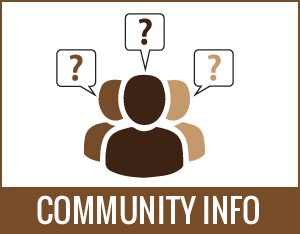- By Todd Luck
- Posted Monday, March 27, 2023
Stepping Up recovery program celebrates another graduation
The Stepping Up Process to End Recidivism (SUPER) held its latest graduation ceremony on March 23. The yearlong program provides support services to those with mental health and/or substance use issues who may have criminal justice involvement.
The ceremony celebrated five graduates who have been in recovery and have not incurred any new criminal charges for at least a year. To go along with the “SUPER” theme, graduates wore capes as they marched down the aisle.
“Now that you are a SUPER graduate, climb to great heights and leap over any obstacles that get in your way,” said Stepping Up Supervisor Amber Humble. “You have earned your capes.”
She urged them to stay in touch, saying that Stepping Up staff would continue to be there for them. She urged them to be examples to others and to come back and share their stories in Stepping Up support groups.
Stepping Up Peer Support Specialist Al Thomas, who works with the men in the SUPER program, told the two male graduates in attendance that he was proud of what they’ve accomplished.
“Your achievements have not gone unnoticed and have made a significant impact on the lives of those around you,” said Thomas. “You are both proof that with hard work and determination and the right mind set, anything is possible.”
Pam Goodine, the Peer Support Specialist who works with women in the program, celebrated accomplishments of the two female graduates in attendance and encouraged graduates to participate in advisory councils on mental health and substance abuse.
“Let the pride you must be feeling right now give you confidence for the future and may you know that many others will be sharing in your happiness as you strive for the dreams that mean the most to you,” said Goodine.
The program helped graduates in a variety of ways, including helping some of them get benefits and housing.
One graduate, Christine said she was nearly suicidal before she started Stepping Up and the program gave her coping skills to deal with her mental illness. During one discussion group session she was asked what hope means. She responded she didn’t know what hope was. Another participant told her, “Yes, you do, you’re here.”
“That was an awakening for me because I didn’t realize that I was capable of having hope and feeling worthy and doing something good for other people,” said Christine.
Certificates were presented to the graduates by Commissioner Gloria Whisenhunt. Commissioners Tonya McDaniel and Malishai "Shai" Woodbury were in attendance, as was County staff, family members, and other program participants.
SUPER is part of the Stepping Up Initiative. It’s based on a national model that Commissioner Whisenhunt learned about at a National Association of Counties (NACo) workshop. Whisenhunt, who serves on the board of NACo, brought the idea to county staff, who crafted the program, and to her fellow commissioners, who fund the program. It also receives grant funding from The Winston-Salem Foundation, and started with an initial grant from the Kate B. Reynolds Foundation.
The Stepping Up Initiative also includes the county’s Mental Health Court, a pre-plea treatment program, which results in the dismissal of charges for successful graduates.






